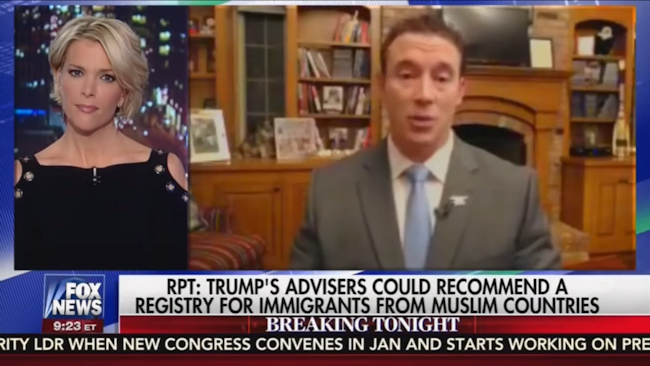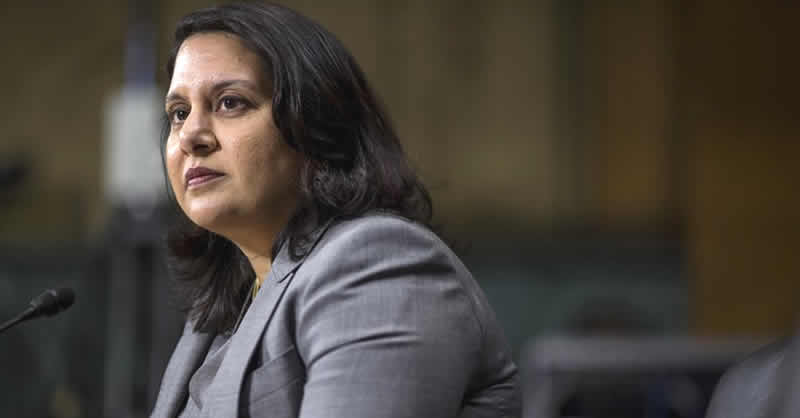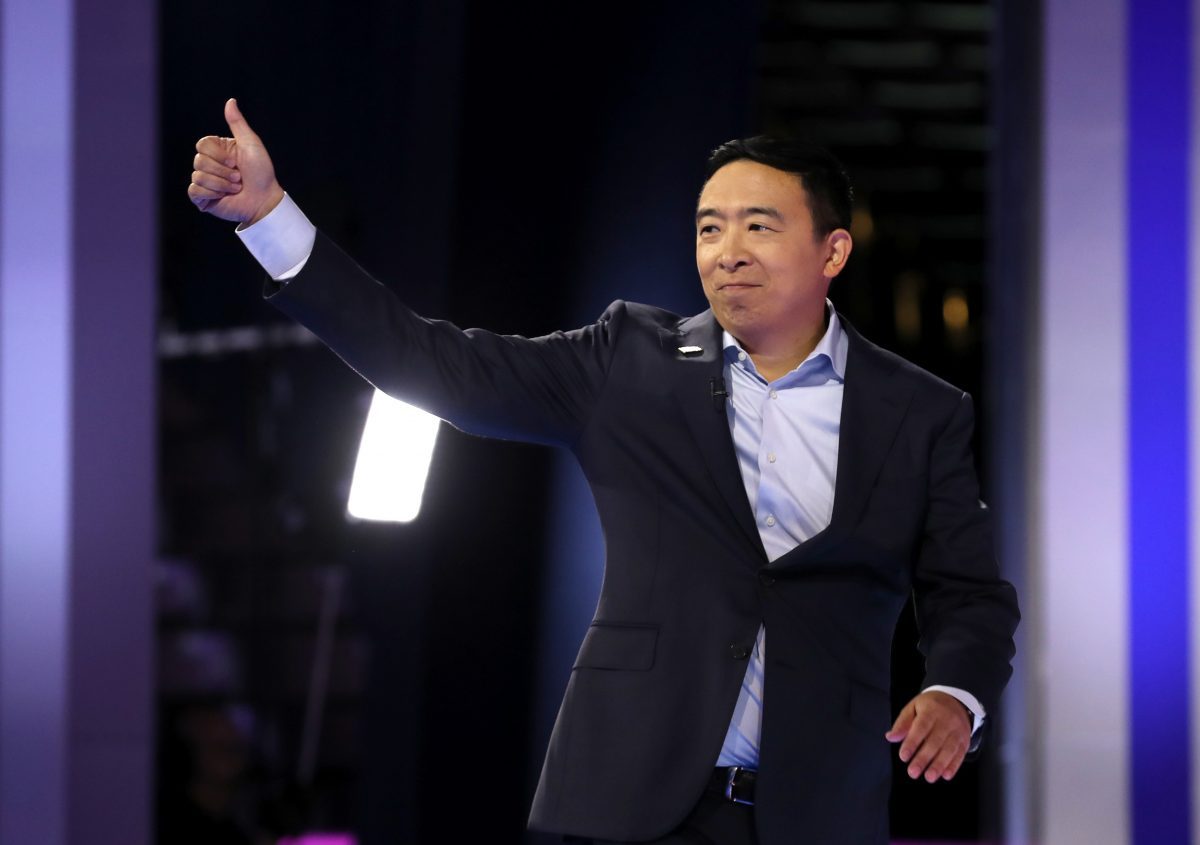
We all knew it would come to this, didn’t we?
Last night, Trump supporter Carl Higbie, a former spokesperson for the Great America PAC, appeared on Fox News’ The Kelly File to defend the Trump administration’s plans to create a national registry of Muslims. When challenged about the unconstitutionality of such a plan, Higbie declared that the proposed registry had legal precedent, highlighting Japanese American incarceration as an example (video after the jump).
https://www.youtube.com/watch?v=EiaXNxQ1w8k
In the segment, Higbie cites national security concerns to justify his belief that the United States should register Muslims. When asked whether such a registry would violate the constitutional rights of those Muslims who would be forced to register their movement, Higbie said that America has a history of forcing members of racial or ethnic groups to register with the government, including during World War II when Executive Order 9066 resulted in the forcible removal of over 100,000 Japanese Americans into American concentration camps (a note on language from the JACL).
“We’ve done it based on race, we’ve done it based on religion, we’ve done it based on region,” Mr. Higbie said in an appearance on “The Kelly File.” “We’ve done it with Iran back — back a while ago. We did it during World War II with Japanese.”
“You’re not proposing that we go back to the days of internment camps, I hope,” said Megyn Kelly, the host of the show.
Mr. Higbie, a former Navy SEAL, denied that, but said, “We need to protect America first.”
Higbie suggests that national registries — and forcible relocation — of non-citizens is legal because immigrants do not fall under the protection of the US Constitution. Yet, during World War II, two-thirds of Japanese incarcerated in camps were US citizens. Furthermore, non-citizen incarcerees were not non-citizens by choice; at the time, the United States prohibited the naturalization of immigrants from Asia by race. Never mind, of course, that a subsequent century of court rulings have established that the Constitution does, in fact, apply to immigrants, documented or otherwise.
Japanese American incarceration is considered among the darkest moments of American history. Compelled almost entirely by racist intolerance and stereotypes, America incarcerated Japanese Americans in desolate and harsh conditions for years. Families were broken up while personal property — totaling nearly $150 million dollars across all incarcerees — was looted by White neighbours. After the camps were closed, Japanese Americans lobbied the federal government for redress, finally winning an apology and reparations in 1988. Nonetheless, the Supreme Court ruled in 1944 in Korematsu v. United States forcible removal of Japanese Americans from their homes was legal, leaving the doors open for future registration and incarceration efforts targeting certain groups by race or religion.
This seems to be more likely than ever under a President Donald Trump.
The Fox News segment was prompted by news that broke earlier this week that President-elect Donald Trump’s transition team had tapped Kansas Secretary of State Kris Kobach, architect of an earlier federal effort to register Muslim immigrants, as a key member of his transition team. In 2002, Congress under the Bush administration charged Kobach (then a Justice Department advisor) to create the National Security Entry-Exit Registry System (NSEERS), which has been described as “a tool that allowed the government to systematically target Arabs, Middle Easterners, Muslims, and South Asians from designated countries for enhanced scrutiny.”
“The most controversial piece of NSEERS required nonimmigrant males who were 16 years of age and older from 25 specific countries to register at local immigration offices for fingerprinting, photographs, and lengthy, invasive interrogations,” reports the RIGHTS Working Group and the Center for Immigrants’ Rights, Pennsylvania State University’s Dickinson School of Law. NSEERS came under harsh fire from civil rights organizations who argued that the system amounted to state-sanctioned racial profiling designed to specifically target Muslims. NSEERS required Muslim immigrants to notify the government of their every movement under a mind-boggling array of legal strictures, and it criminalized any who failed to promptly register their travel even if by accident or by ignorance; as a consequence, 16% of registered Muslims — most of them innocent of any of the criminal activities the program was designed to prevent — were deported as a result of the program.
In fact, NSEERS failed to identify a single terrorist over the decade of its existence, according to a 2012 statement by Senator Dick Durbin before the Senate Judiciary Committee.
NSEERS was abandoned in 2011 and replaced by the Obama Administration’s US-VISIT program which uses biometric data to track all non-citizens who apply for visas or enter the United States at ports of entry for comparison against a database of suspected terrorists. In contrast to NSEERS, the program is applied to all travelers regardless of country of origin, except for in a few notable exceptions such as for those citizens who travel between the United States and Canada.

Now, NSEERS is poised to make a comeback under the Trump administration. Kobach has influence with Trump, and he has been floated as a possible candidate for attorney general. In a recent round of interviews, Kobach suggested that in his first days in office, Trump should write an Executive Order reinstituting NSEERS.
The return of NSEERS should be truly frightening to all those who value civil rights. Indeed, the American Civil Liberties Union (ACLU) opposed NSEERS when it was first implemented in 2002, and has already vowed to fight the Trump administration should it attempt this or any other of its unconstitutional campaign promises.
Today, I call upon the Asian American & Pacific Islander (AAPI) community to join this fight. Our community is all too familiar with the consequences of a government that deploys racist suspicion against its own citizenry to violate their basic civil rights. We must speak out strongly against Carl Higbie’s invocation of Japanese American incarceration to support a national registry of Muslims, and we must stand in the way of Trump’s plans to reinstitute this registry. I call upon AAPI members of Congress — including members of the Congressional Asian Pacific American Caucus (CAPAC) — to take the lead in fighting any Trump administration effort to rewrite Asian American history as justification for the targeting, registration, harassment, and criminalization of Muslims.
Donald Trump has not even been sworn into office, and already the lives and security of people of colour are in jeopardy. Now is the time for AAPIs to join our allies and the Democratic party. Together, we must draw a line in the sand, and we must tell Trump that he may encroach no further upon the civil liberties of people of colour.
We must issue a challenge to the future president that he will not take away our rights without a fight.
Update (11/17/2016, 12:30pm): Actor George Takei, who grew up in the camps and who is now a vocal advocate for Japanese American history, tweeted criticism of the segment calling Higbie’s remarks “dangerous”. Representative Mark Takano also tweeted a call upon Trump to disavow Higbie’s statements.
I'm calling on @realDonaldTrump to immediately denounce the comments made by a surrogate regarding Japanese-American Internment. pic.twitter.com/Nd9oSP4L5s
— Mark Takano (@RepMarkTakano) November 17, 2016
DNC spokesperson Mark Paustenbach also said, according to NBC News:
“Donald Trump’s proposed ‘Muslim registry’ is nothing less than institutionalized discrimination and a brazen assault on freedom of religion. The Trump team has clearly forgotten history and they’re already dooming their own chances of success by repeating the worst mistakes of the past.”
Update (11/17/2016, 4:45pm): DNC AAPI Caucus chair Bel-Long Hong issued a statement condemning Higbie’s commentary.
For Immediate Release
November 17, 2016Contact: DNC Press- [email protected]
DNC Statement on Trump Team Using Japanese Internment Camps as ‘Precedent’ for Muslim Registry
WASHINGTON- DNC AAPI Caucus Chair Bel Leong-Hong issued the following statement:
“Donald Trump campaigned on a dangerous promise to discriminate against Muslim Americans. Now, his supporters are turning to one of the darkest chapters in our history to justify Trump’s proposed ‘Muslim registry’ for tracking Muslim immigrants. Yesterday, the spokesman for a major pro-Trump super PAC, Carl Higbie, cited Japanese internment camps as a precedent for such a program. But Higbie’s comments shouldn’t be a surprise because Trump himself argued the same thing last year. And let’s not forget that he has chosen Alt-Right leader Stephen Bannon – a man associated with White Nationalists who once complained that there are too many Asian CEOs in Silicon Valley – as his senior adviser.
“Our nation has long since rejected Japanese Internment in a bipartisan fashion. Under no conditions should the US adopt such a measure against a whole sector of our community. We are calling on Republicans and fellow Democrats alike to denounce this rhetoric and openly xenophobic policies. We cannot repeat the terrible mistakes of our past. And we must never cease in our defense of the rights and freedoms that all Americans share, no matter their race, religion or creed.”
###
The Congressional Asian Pacific American Caucus (CAPAC) also issued a statement, which included comments from CAPAC Chair Judy Chu, CAPAC Vice Chair Madeleine Bordallo, CAPAC whip Mark Takano whose family was forcibly removed by Executive Order 9066 during World War II, and CAPAC Chair Emeritus Mike Honda, who spent time in an American concentration camp as a child.
CAPAC Condemns Trump Surrogate’s Comments on Japanese American Internment as Precedent for Muslim Registry
Washington, DC – Today, leaders of the Congressional Asian Pacific American Caucus (CAPAC) released the following statements condemning comments by supporters of President-elect Trump who cite Japanese American internment camps as a “precedent” for the creation of a Muslim registry:
Congresswoman Judy Chu (CA-27), CAPAC Chair:
“Any proposal to force American Muslims to register with the federal government, and to use Japanese imprisonment during World War II as precedent, is abhorrent and has no place in our society. These ideas are based on tactics of fear, division, and hate that we must condemn. The incarceration of innocent Japanese Americans due to wartime hysteria and racism was a dark chapter in our nation’s history which led to civil rights violations so unconscionable that Congress later apologized for it. Like Japanese incarceration, imposing a registry upon American Muslims goes against our constitutional values and our very principles as a nation. We will remain vigilant and push back against the creation of any such registry, and implore the President-elect to recognize the basic civil and constitutional rights of all Americans.”
Congresswoman Madeleine Bordallo (GU), CAPAC Vice Chair:
“The suggestion of a Muslim registry, and likening such a registry to the internment of thousands of Japanese Americans during World War II is dangerous and recalls one of our nation’s darkest spots in recent history. Recognizing the wrongdoing, we officially apologized to the Japanese Americans who were interned, when President Ronald Reagan signed into law the Civil Liberties Act of 1988, saying that it reaffirmed ‘our commitment as a Nation to equal justice under the law.’ We should not let misguided fear undermine our constitutional protections for religious freedom and lead us back down this dark path. Let us remain vigilant to not repeat the grievous mistakes of our nation’s past.”
Congressman Mike Honda (CA-17), CAPAC Chair Emeritus:
“These remarks are beyond disturbing. This is fear, not courage. This is hate, not policy. President Reagan, himself, called our internment a ‘failure of political leadership.’ This does not make American great but would take us back to the bigotry of the 1940s. The Trump administration is showing they have not learned from our history when they suggest we go back to one of its darkest chapters. No one should go through what my family and 120,000 innocent people suffered regardless of their race or religion or any other way they would choose to try and divide us. I fought such divisive practices after 9/11 to ensure Muslims would not be unfairly targeted just as we were. Now today, I tell Mr. Trump that to reenact a policy fueled by prejudice is uncivilized, un-American and unworthy of a president sworn to uphold our Constitution.”
Congressman Mark Takano (CA-41), CAPAC Whip:
“The imprisonment of thousands of Japanese-Americans during World War II, including my parents and grandparents, is widely understood to be one of the darkest chapters in American history. I am horrified that people connected to the incoming Administration are using my family’s experience as a precedent for what President-elect Trump could do. These comments confirm many Americans’ worst fears about the Trump Administration, and they reflect an alarming resurgence of racism and xenophobia in our political discourse. I call on the President-elect to immediately disavow these comments and begin the work of healing our nation’s divides.”
###
On Twitter, Carl Higbie (@CarlHigbie) blamed “dishonest media” today for the backlash against his commentary, saying that people were upset because of “wrong headlines”. I humbly suggest that Higbie may, once again, be wrong.
I advise ppl seeing wrong headlines 2day to hear i said on @megynkelly, dishonest media is why @realDonaldTrump won https://t.co/qwKSTcDq98
— Carl Higbie (@CarlHigbie) November 17, 2016
Update (11/18/2016, 12:30pm): Both the Japanese American Citizens’ League (JACL) and the National Council of Asian Pacific Americans have issued statements denouncing Higbie’s comments. NCAPA national director Chris Kang said:
“The only reference that should ever be made to the incarceration of Japanese Americans during World War II is that it is a shameful chapter in American history and should never be repeated. Even more offensive than Higbie’s ignorance of history’s lessons is the underlying policy it was meant to defend. Muslim Americans and those perceived to be Muslim already have experienced a shocking rise in incidents of hate and violence since the election. This is not what America stands for. We stand for equality and justice.
The JACL said:
We must not misinterpret our history by believing the Japanese American incarceration was justified as a precedent for similar actions today, and further, we must not use the wrongdoing perpetrated against Japanese Americans during World War II as a justification for the mistreatment of Muslim Americans.


